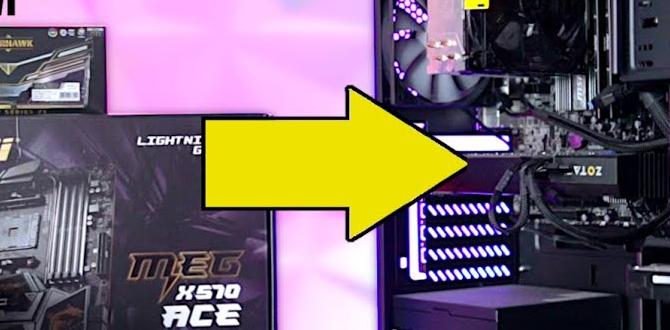H2: Check your current hardware
Identify weak components
Before diving into upgrading your PC for gaming, it’s crucial to assess the current state of your hardware. Check the specifications of your CPU, GPU, RAM, storage, and power supply to identify any weak components that may be hindering your gaming experience.
H2: Determine upgrade budget
Set a spending limit
Once you’ve identified the components that need upgrading, it’s essential to establish a budget for your PC upgrade. Setting a spending limit will help you prioritize which components to focus on and ensure you stay within your financial means.
H2: Research compatible components
Ensure compatibility with existing hardware
Research and select components that are compatible with your existing hardware to avoid any compatibility issues. Check the socket type for the CPU, the interface for the GPU, the type and speed of RAM, and the form factor for storage to ensure seamless integration.
H2: Upgrade RAM and GPU
Increase RAM for better performance
Increasing the amount of RAM in your PC can significantly improve gaming performance by allowing for smoother multitasking and faster data access. Consider upgrading to higher capacity and faster RAM sticks to enhance your gaming experience.
H2: Upgrade CPU and cooling system
Improve processing power and temperature control
Upgrading your CPU to a more powerful model can boost the processing power of your PC, leading to better gaming performance and faster load times. Additionally, investing in a better cooling system will help maintain optimal temperatures during intense gaming sessions.
H2: Upgrade storage to SSD
Install faster storage for quicker load times
Swapping out your traditional hard drive for a solid-state drive (SSD) can significantly reduce loading times in games and improve overall system responsiveness. Consider upgrading to an SSD for faster boot times and quicker access to game files.
H2: Consider upgrading power supply
Ensure sufficient power for new components
When upgrading to more power-hungry components, such as a high-end GPU or CPU, it’s essential to ensure that your power supply unit (PSU) can provide sufficient power. Consider upgrading to a higher wattage PSU to support the power requirements of your new components.
Conclusion
Upgrading your PC for gaming can greatly enhance your gaming experience by improving performance and reducing load times. By assessing your current hardware, setting a budget, researching compatible components, and upgrading key elements such as RAM, GPU, CPU, storage, and power supply, you can create a powerful gaming rig tailored to your gaming needs.
FAQs
1. How do I know if my PC needs an upgrade for gaming?
If your PC is struggling to run modern games smoothly, experiencing long loading times, or encountering frequent crashes, it may be time for an upgrade.
2. What is the importance of upgrading RAM for gaming?
Upgrading RAM can improve multitasking capabilities, increase performance in games that require more memory, and overall enhance the gaming experience.
3. Should I prioritize upgrading the CPU or GPU for gaming?
It depends on the current bottleneck in your system. If you notice that games are not running smoothly due to graphics-related issues, prioritize upgrading the GPU. If you experience lag due to processing power limitations, focus on upgrading the CPU.
4. How can cooling system upgrades benefit gaming performance?
A more efficient cooling system can help maintain stable temperatures during gaming sessions, preventing overheating and throttling, which can lead to improved performance and longevity of your components.
5. What are the advantages of switching to an SSD for gaming?
SSDs offer faster data access speeds compared to traditional hard drives, resulting in quicker load times for games, faster system boot-ups, and overall snappier performance in gaming and other applications.
